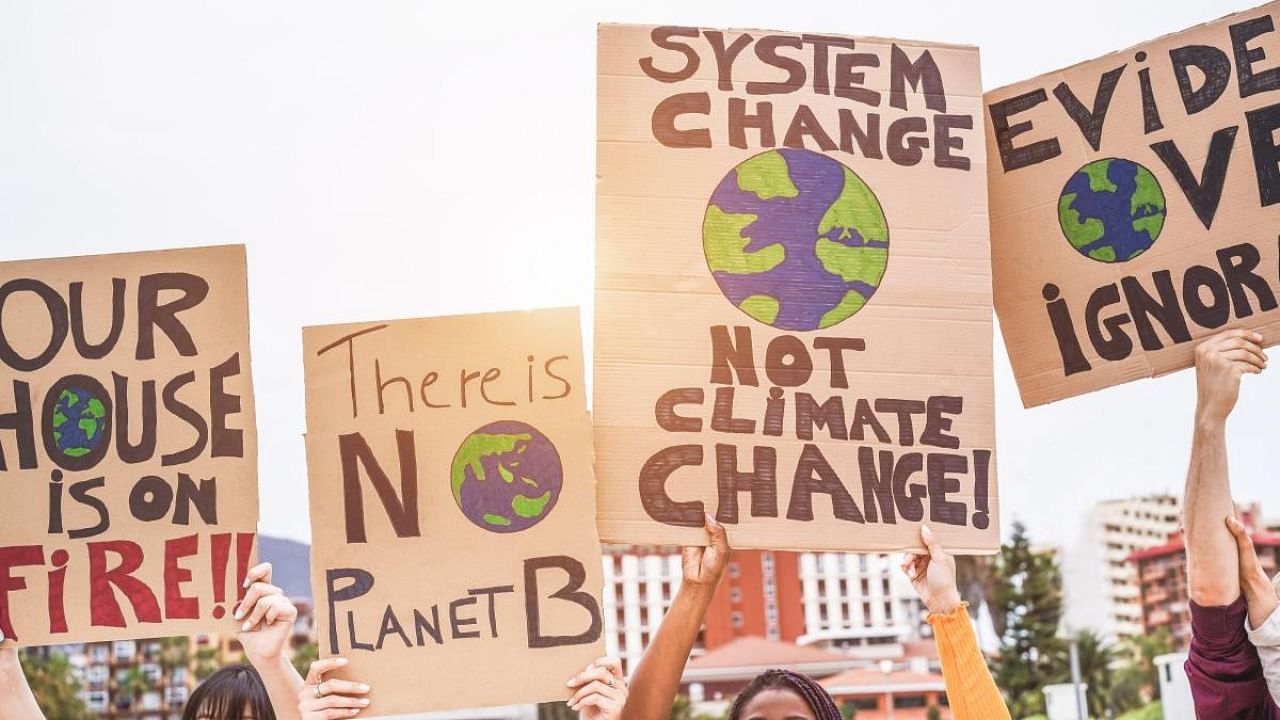
The road to sustainability is undoubtedly going to be long and strenuous. International climate negotiations are stumbling along, with hurdles and barriers on many themes such as reaching net-zero emissions, addressing loss and damage from climate impacts, and assuring support for developing countries. The lines of dispute between rich and developing countries in climate negotiations appear impregnable mainly because they are organised around a lopsided world economic order. Nevertheless, the month of May brought several small but consequential victories for climate change action.
Decisions
In two separate lawsuits, outcomes were in favour of plaintiffs who sued governments or multinationals. The first was a landmark ruling in Australia where eight teens filed a suit against Environment Minister Susan Ley, seeking to block the expansion of the Vickery coal mine in New South Wales. The judge ruled that Minister Ley had a “duty of care”, an obligation to protect the youth and the environment from the adverse effects of climate change. Even though the court did not issue an injunction, it recognised that the government had the responsibility to protect young people from the catastrophic harms of climate change, the first time a court had done so.
The second case was a historic win in The Hague where the District Court ordered Royal Dutch Shell to slash the company’s direct and indirect carbon dioxide emissions. In 2030, these must be 45% lower globally relative to 2019 levels. Friends of the Earth (Milieudefensie) and several other organisations had brought the suit against the oil major because Shell continued to invest in fossil fuels with the knowledge that its actions cause global warming. Both verdicts set precedents for similar cases against polluting multinationals and governments around the world.
There were two more reasons to rejoice. Shareholder activism led to success in chastening two oil majors over the same period. The climate activist group, Follow This, led a rebellion in Chevron. In the preliminary count, the group managed to sway 61% of shareholders at Chevron to vote, over objections of the management, to demand that the company make substantial emissions cuts from the end use of its products (Scope 3 emissions).
A small hedge fund, Engine No. 1, pushed for green business strategies by ExxonMobil. After persuading pension funds from California and New York to join the faceoff, it was able to appoint two of its people to the board of ExxonMobil. These changes took place despite the hedge fund’s small stake ($50 million) in a company worth $250 billion. The ‘Little Engine That Could’ thus forced a reckoning in the oil industry.
Fossil fuel companies might not see the folly of their ways right away. Still, the wins have shown that as frustration regarding inaction on climate change deepens, board activism, like court action, can successfully put corporations and governments on notice to take climate change and future generations more seriously.
Implications
Since 1986, there have been more than 1,500 cases relating to climate change that have been filed worldwide. These are predominantly in the US, Australia, UK and Europe, but a few are also in developing countries such as Colombia, Pakistan and India. In 2020, the International Bar Association published a guide for litigation to challenge government failure to act on climate change. They covered issues of standing and jurisdiction, redressability and forms of evidence needed for successful suits.
Several of the recent cases have been significant and relate to implementing national policies on climate change. In these, courts have generally agreed with plaintiffs that climate change is a grave problem warranting effective action by governments and fossil fuel companies. Their rulings have, however, differed with the local context.
In 2020, the construction of a third runway at Heathrow airport was blocked by a ruling where the court agreed that the action would jeopardise UK’s commitment to the Paris Agreement. Another suit brought by young climate activists in Germany charged that a law passed in 2019 only went as far as 2030 and did not develop long-term plans leading to net-zero emissions. The litigants claimed that in postponing or delaying strategies for future action, the country was merely kicking the can down the road, and the court agreed.
In 2015, 21 youth raised a legal challenge in a federal court against the US government for failing to act on climate change. The well-known suit, Juliana v. the United States, is part of a movement of “atmospheric trust litigation.” This type of lawsuit applies the public trust doctrine to the climate system. The lawsuit alleges that the government encouraged activities that burned fossil fuels and deprived the plaintiffs of a safe and stable climate system and, ultimately, their “constitutional rights to life, liberty, property and public trust resources.”
The Ninth Circuit dismissed the case in 2020. In his majority opinion, Judge Horowitz agreed with the charges made by the plaintiffs but wrote: “Reluctantly, we conclude that such relief is beyond our constitutional power. Rather, the plaintiffs’ impressive case for redress must be presented to the political branches of government”. In her strong dissent, Judge Staton wrote that there was sufficient reason for the court to force the government towards remedial action. In closing, she asked, “When the seas envelop our coastal cities, fires and droughts haunt our interiors, and storms ravage everything between, those remaining will ask: Why did so many do so little?”
Ultimately, the fate of climate change policy lies with people’s movements for action and the policies enacted by their elected representatives. Courts can, however, instruct and coerce responsible government action. Similarly, shareholders in polluting companies have a fiduciary responsibility to ensure that they too are able to answer Judge Staton’s question resolutely: What did you do to address climate change?
(The writer is a scientist whose interests are science, technology and policy)